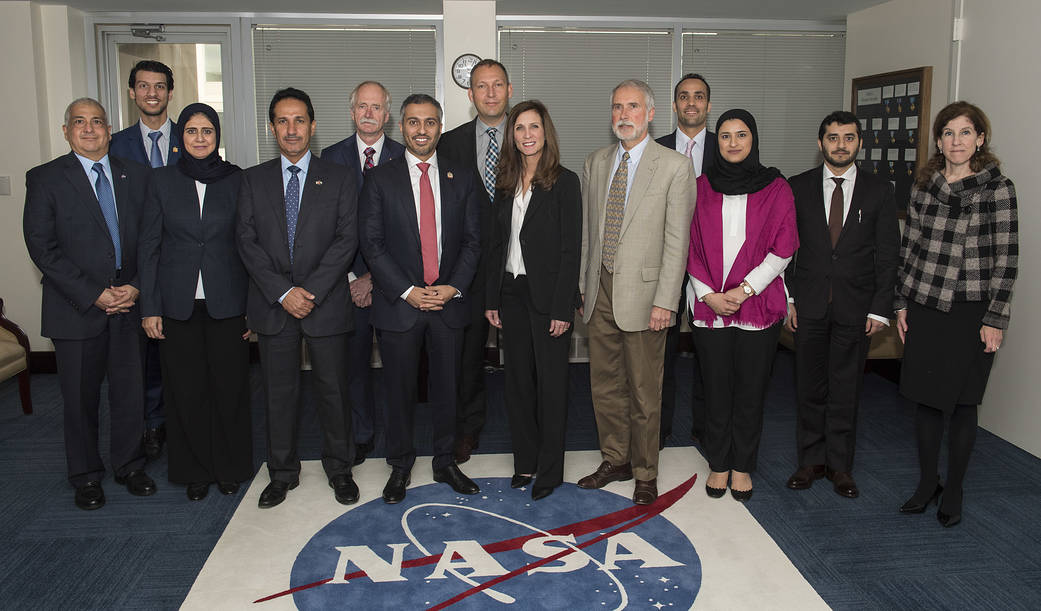Understanding the Reasons Behind Trump’s Reversal on His NASA Selection
President Trump’s decision to backtrack on his initial choice for NASA Administrator left many puzzled. After nominating Rep. Jim Bridenstine, the administration pivoted to propose Sen. Bill Nelson, a move that raised eyebrows within the space industry and political circles.
The Political Playground: Trump’s Calculated Move
One plausible explanation for the reversal is rooted in politics. Nomination battles in the Senate can be contentious, and some argue that by choosing Nelson, a respected former Senator, Trump sought to ease the confirmation process and avoid potential gridlock.
Space Policy Dynamics: Bridenstine vs. Nelson
Another crucial aspect at play could be the contrasting views on space policy between Bridenstine and Nelson. Bridenstine, known for his hawkish stance on space militarization and commercialization, may have faced opposition from those advocating for a more diplomatic and cooperative approach in space exploration.
The Future of NASA Leadership: Navigating Uncertainties
As the NASA Administrator selection undergoes further scrutiny, the space community awaits clarity on the direction of the agency’s leadership. Whether Trump’s change of heart indicates a broader shift in space policy or merely a strategic maneuver remains to be seen.
The Impact of Trump’s NASA Leadership Reversal
When considering the repercussions of Trump’s decisions regarding NASA leadership, the implications are profound and multifaceted. In 2017, the Trump administration appointed Jim Bridenstine as NASA Administrator, marking a break from the tradition of having a career scientist lead the agency. This move stirred controversy as Bridenstine, a politician, lacked a scientific background.
One significant impact of this reversal was the potential shift in NASA’s focus and priorities. By appointing someone with a political background, there were concerns about the agency becoming more politicized and straying from its core mission of scientific exploration and discovery. This decision also raised questions about the future direction of NASA’s programs, such as its Earth Science initiatives that had been crucial for monitoring climate change.
Furthermore, the leadership reversal under the Trump administration highlighted the importance of expertise and experience in guiding a scientific agency like NASA. Scientific leadership is essential for ensuring that NASA’s missions and projects adhere to the highest standards of research, innovation, and safety. Trump’s move to appoint a political figure instead of a renowned scientist could have long-term consequences on how NASA operates and the trust it garners from the scientific community and the public.
Potential Candidates to Lead NASA After Trump’s U-Turn
As the spotlight shines on potential candidates to helm NASA post-Trump’s administration, one common misconception is that the role requires solely a background in rocket science. In reality, NASA leaders often come from diverse backgrounds such as engineering, administration, and even politics, emphasizing the need for a versatile skill set.
Insights on How Trump’s Decision Reflects His Administration’s Space Policy
Expert Insights (Q&A)
Q: What are the most significant misconceptions about How Trump’s Decision Reflects His Administration’s Space Policy?
A: While many may interpret Trump’s decisions in space policy as impulsive or politically motivated, in reality, they often stem from a strategic vision for advancing U.S. interests in space and maintaining national security.
Q: Why does How Trump’s Decision Reflects His Administration’s Space Policy matter more than most people realize?
A: The intersection of politics and space policy holds immense implications for technological innovation, international relations, and the future of space exploration. Decisions in this arena can shape the competitive landscape among nations and impact global leadership.
Q: How is How Trump’s Decision Reflects His Administration’s Space Policy likely to evolve in the coming years?
A: Over the next years, we can anticipate a continued focus on commercializing space activities, fostering public-private partnerships, and enhancing space capabilities for defense and exploration. Political priorities and international collaborations will play a pivotal role in shaping the trajectory of U.S. space policy and its implications on a global scale.












Leave a Reply